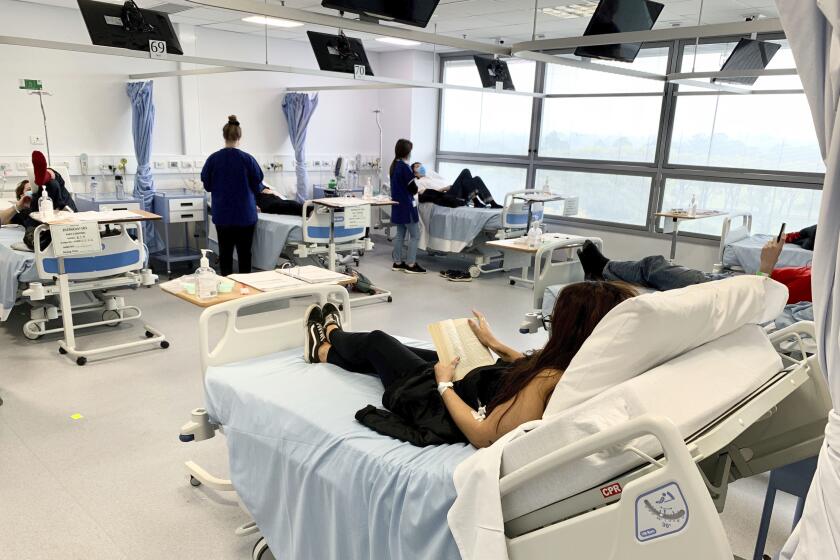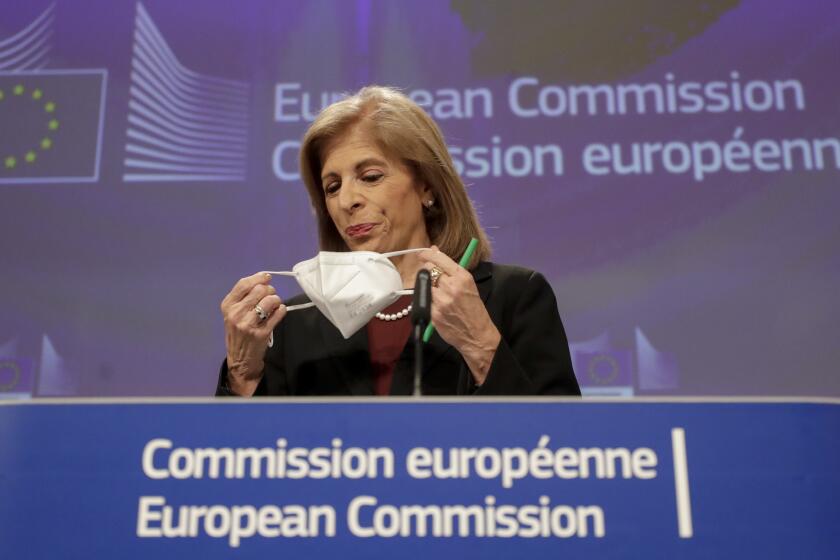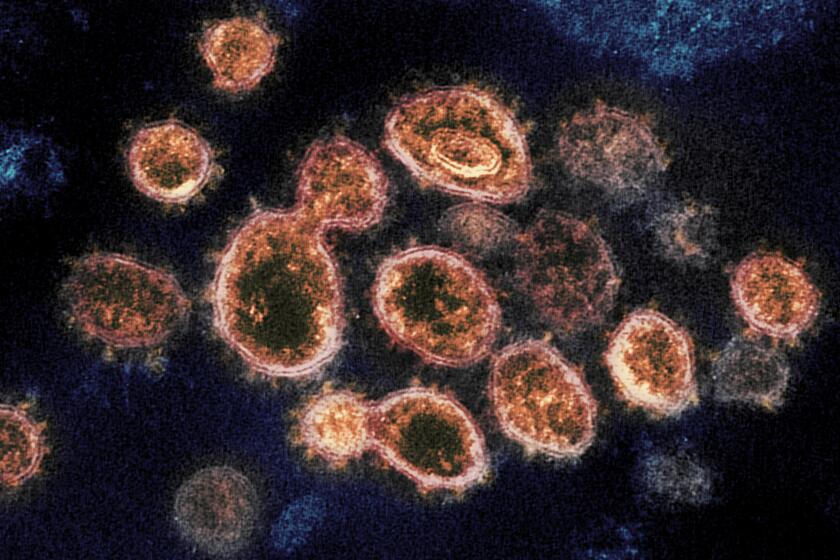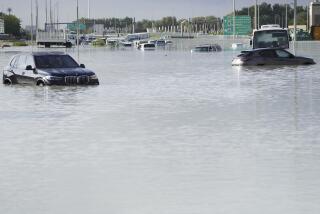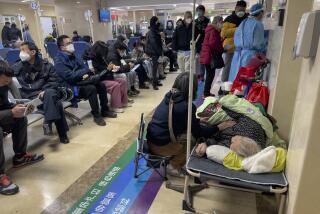Dubai blamed for coronavirus cases abroad after allowing New Year’s festivities
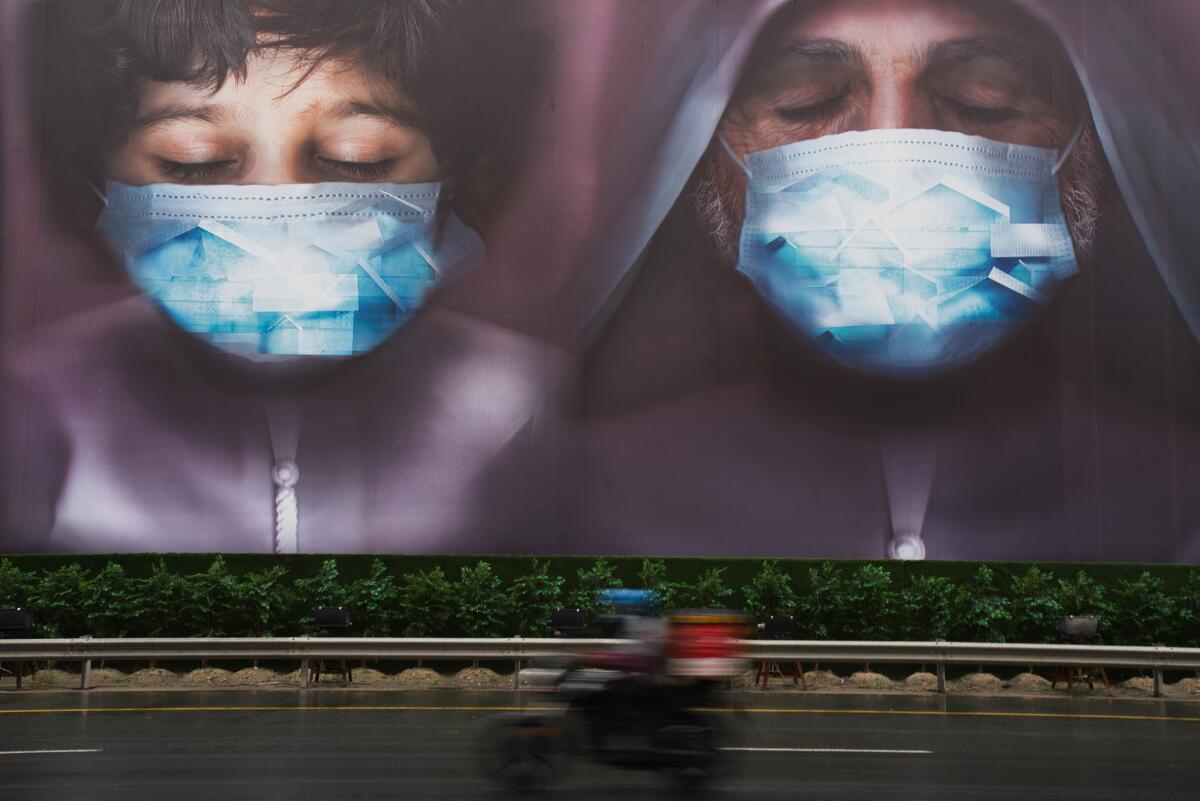
DUBAI, United Arab Emirates — After opening itself to New Year’s revelers, Dubai is now being blamed by several countries for spreading the coronavirus abroad, even as questions swirl about the city-state’s ability to handle reported record spikes in virus cases.
The government’s Dubai Media Office says the sheikhdom is doing all it can to handle the pandemic, though it has repeatedly declined to answer questions from the Associated Press about its hospital capacity.
“After a year of managing the pandemic, we can confidently say the current situation is under control and we have our plans to surge any capacity in the healthcare system should a need rise,” it said.
However, Nasser Shaikh, Dubai’s former finance minister, offered a different assessment Thursday on Twitter and asked authorities to take control of a spiraling caseload.
“The leadership bases its decisions on recommendations from the team, the wrong recommendations which put human souls in danger and negatively affect our society,” he wrote, adding that “our economy requires accountability.”
Novavax Inc. says its COVID-19 vaccine appears 89% effective, based on early findings from a British study.
Dubai, known for its long-haul carrier Emirates, the world’s tallest building and its beaches and bars, in July became one of the first travel destinations to describe itself as open for business. The move stanched the bleeding of its crucial tourism and real estate sectors after lockdowns and curfews cratered its economy.
As tourism restarted, daily reported coronavirus case numbers slowly grew but mostly remained stable through the fall.
But then came New Year’s Eve — a major draw for travelers from countries otherwise shut down over the virus who partied without face masks in bars and on yachts. For the last 17 days, the United Arab Emirates as a whole has reported record daily coronavirus case numbers as lines at Dubai testing facilities grow.
In Israel, more than 900 travelers returning from Dubai have been infected with the coronavirus, according to the military, which conducts contact tracing. The returnees created a chain of infections numbering more than 4,000 people, it said.
Tens of thousands of Israelis had flocked to the UAE since the two countries normalized relations in September. Dr. Sharon Alroy-Preis, an Israeli Health Ministry expert, was quoted by Channel 13 TV as complaining in a call with other officials that a few weeks of travel had been more deadly than decades of no relations with the Arab nation.
Since late December, Israel has required those coming from the UAE to go into a two-week quarantine. Israel later shut down its main international airport through the end of the month over rising cases.
In the United Kingdom, tabloids have splashed shots of bikini-clad British influencers partying in Dubai while the country struggled through lockdowns trying to control the virus. Britain in mid-January closed a travel corridor to Dubai that had allowed travelers to skip quarantine over what was described as a significant acceleration in the number of imported cases from the UAE.
“International travel, right now, should not be happening unless it’s absolutely necessary,” Health Secretary Matt Hancock told the BBC this week. “No parties in Paris or weekends in Dubai. That is not on and in most cases, it’s against the law.”
The European Union’s dispute with AstraZeneca has intensified, with the drugmaker denying it had pulled out of talks on COVID-19 vaccine supplies.
Meanwhile, mutated strains of the coronavirus have been linked back to Dubai. The U.K. instituted a travel ban Friday barring direct flights to the UAE over the spread of a South African variant of the coronavirus.
Denmark already discovered one traveler coming from Dubai who tested positive for the South African variant, the first such discovery there. Like Britain, Denmark has residents who traveled to Dubai for the New Year.
In the Philippines, health authorities say they discovered a British strain infecting a Filipino who made a business trip to Dubai on Dec. 27. He returned to the Philippines on Jan. 7 and tested positive.
He “had no exposure to a confirmed case prior to their departure to Dubai,” the Philippines Department of Health said. In the time since, Filipino authorities have discovered at least 16 other cases of the British variant, including two coming from Lebanon.
As daily reported coronavirus cases near 4,000, Dubai has fired the head of its government health agency without explanation. It stopped live entertainment at bars, halted nonessential surgeries, limited wedding sizes and ordered gyms to increase space between those working out. It also now requires coronavirus testing for all those flying into its airport.
The UAE had pinned its hopes on mass vaccinations, with Abu Dhabi distributing a Chinese vaccine by Sinopharm and Dubai offering Pfizer-BioNTech’s inoculation. The UAE says it has given 2.8 million doses so far, ranking it among the top countries in the world.
However, people including Shaikh now question Dubai’s capacity to handle the increasing cases. Hospitals contacted by the AP largely referred questions back to Dubai’s government, which repeatedly declined to comment. Dubai’s Saudi German Hospital responded saying it was “hoping to read the real news,” without elaborating.
A coronavirus variant first identified in South Africa has reached the U.S., with two cases diagnosed in South Carolina
Dr. Santosh Kumar Sharma, medical director of Dubai’s NMC Royal Hospital, told the AP “the number of cases [is] ever rising,” with over half its beds occupied by coronavirus patients.
The World Health Organization said that before the pandemic, the UAE had nearly 13,250 hospital beds for a country of over 9 million people. It said Dubai and the UAE’s northern emirates built field hospitals amid the pandemic with some 5,000 beds, with Abu Dhabi building more.
But Dubai closed its 3,000-bed field hospital in July — the same day it reopened for tourism. Both Dubai and the UAE’s Health Ministry now advertise for nurses on Instagram.
“The sad thing is that great efforts have been made since January 2020 for us to come and undermine them with our own hands,” Shaikh wrote. “What makes things worse is the lack of transparency.”
Yet that came after the UAE’s autocratic government told those worried earlier this week to “refrain from questioning the efforts of all those who have worked to contain this pandemic.”
Associated Press writers Josef Federman in Jerusalem and Isabel DeBre in Dubai contributed to this report.
More to Read
Sign up for Essential California
The most important California stories and recommendations in your inbox every morning.
You may occasionally receive promotional content from the Los Angeles Times.
